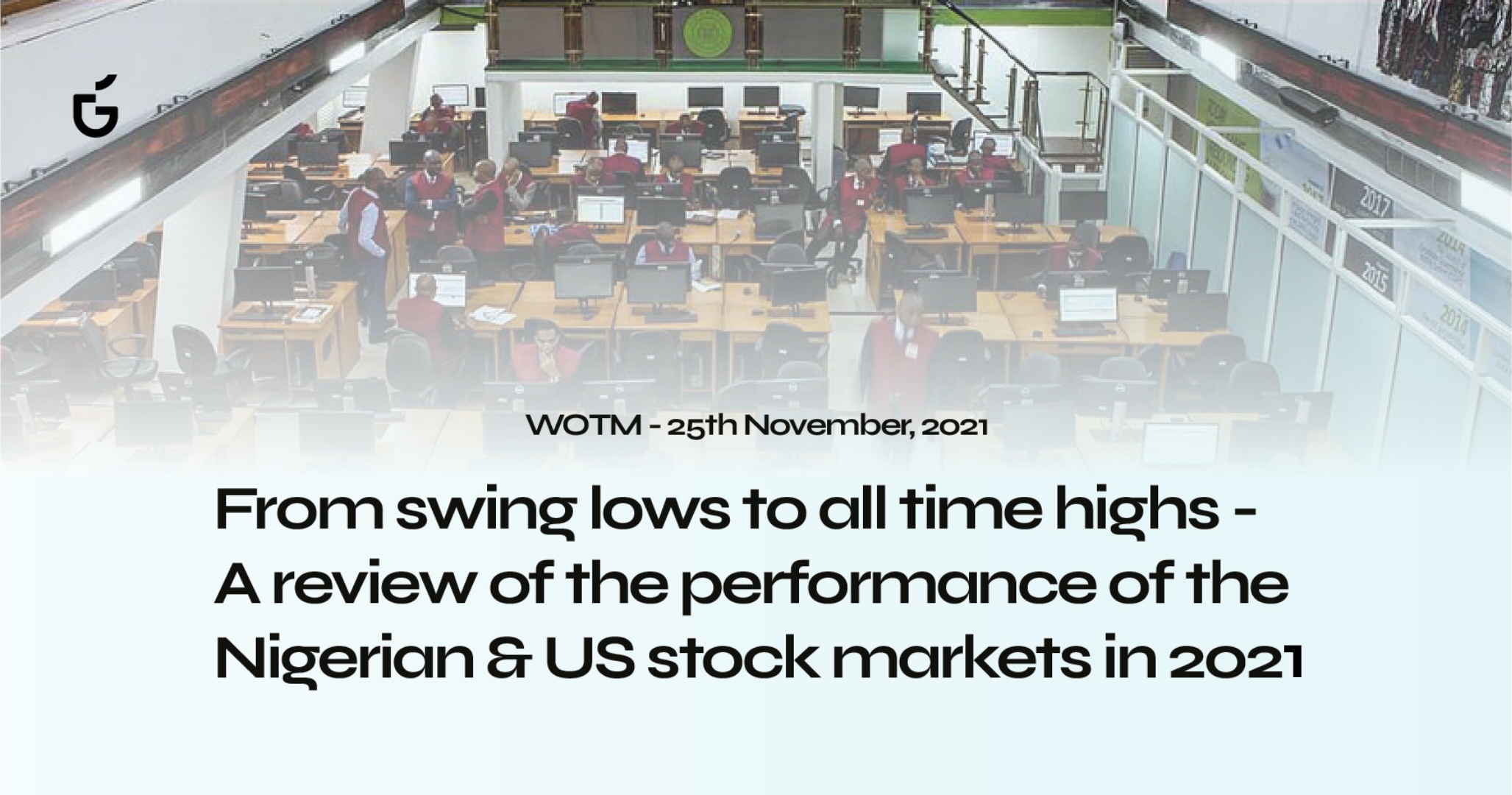 Africa
AfricaUnderstanding how companies are valued – A look into the MainOne acquisition
15 December, 2021
17 June, 2021 | 4 MINS READ
The Story
On Tuesday the 8th of June 2021, three days after the president of El Salvador, Nayib Bukele, announced his intention to make Bitcoin a legal tender, the country’s legislative body legalized the use of Bitcoin as a legal tender in the country with a majority vote of 62 votes to 22. The law will be fully enacted in 90 days.
In the same week, the Central Bank of Nigeria (CBN) announced its plans to launch its digital currency before the end of the year.
Let’s backtrack with some definitions. What are GOVCOINS?
GOVCOINS, also known as Central Bank Digital Currencies (CBDC) ,are digital currencies or cryptocurrencies created by a country’s governing authority. They are backed by the central banks of the countries that own them and are seen as legal tender in such countries.
Why are Governments interested in creating digital currencies?
There are a number of reasons why governing authorities are looking to issue digital currencies:
What Does this Mean for the World Economy?
The emergence of GOVCOINS has varying implications on different parts of the world economy. We break it down based on where we see implications.
Commercial Banking
GOVCOINS are created and controlled by central banks. This basically means if you use GOVCOINS, you have a digital wallet with your country’s central bank. This might literarily cut out commercial banks and enable citizens bank directly with the central bank. This implies we might be moving towards a world economy where commercial banks are no longer relevant.
Financial Assets
The emergence of digital currencies/cryptocurrency led to the creation of digital financial assets. Back in April 2021, the European Investment Bank (EIB) issued its first ever digital bond using the Ethereum blockchain. And according to Goldman Sachs (one of the 3 investment banks that led the transaction), digital bonds significantly cut down the settlement time and transaction cost of issuing a bond. With the growth in use of digital currencies, we expect to see an increase in the digitalization of financial assets.
World Trade
GOVCOINS would also greatly influence world trade. China, a major player in the trade sector of the world introduced the digital version of its currency in April 2020. Currently, most trade transactions in the world are settled in US dollars via the SWIFT system (a messaging network used by financial institutions to quickly, accurately and securely send and receive information, such as money transfer instruction), however, China is creating another option for trade settlement with its digital yuan. With over 120 countries having China as their major trade partner, the dominance of the dollar in the world economy might just be under threat.
Emerging Economies
For emerging countries like Nigeria with growing economies, digital currencies might make it increasingly difficult to use monetary policy tools like interest rate and money supply. The continuous loss of value of the currency of these countries might increase the use of more valuable digital currencies for payments.
Venezuela in a bid to escape the economic sanctions placed on its economy by the US created its own digital currency called Petro. Petro was supposed to be backed by the country’s oil reserves, but months after its launch the cryptocurrency wasn’t accepted by retailers neither was it listed on any crypto exchange. There was also no evidence of the currency being backed by Venezuela’s oil reserves.
The Venezuelan Petro shows it won’t matter if countries with undeveloped economies created their own digital currencies. If their currency is of little value in the world economy, their ability to control their economy will be threatened.
Trade Sanctions
GOVCOINS is also making a case for countries to avoid sanctions. Countries like Russia, China, Iran will be able to easily bypass trade sanctions imposed on them with the use of their digital currencies. These countries with the use of GOVCOINS will directly control their digital currencies (without intermediaries like banks) through their central banking authorities and make it untraceable to countries who are not their trading partners.
Will GOVCOINS Outshine Bitcoin and Its Peers?
Whether or not GOVCOINS will dominate other cryptocurrencies depends on government policies around the use of cryptocurrencies going forward. As we’ve seen with El Salvador, countries that do not want to go through the rigors of creating their own digital currencies may just adopt an already existing cryptocurrency as their legal tender. Following the adoption of Bitcoin as a legal tender in El Salvador last week, a number of politicians in other Latin American countries have publicly supported the move and have shown signs of pushing for same in their own countries.
Also, for emerging countries like Nigeria, cryptocurrencies like Bitcoin and its peers will remain relevant as long as they serve as a better store of value than local currencies.
How Does this Affect me as an Investor?
The relevance of any currency depends on its acceptability as medium of exchange and as a store of value. To put this in perspective, a viral video recently showed Ray Youssef, CEO/Co-founder of Paxful saying, the remittances for foreign currency coming into Nigeria as at January 2020, was $2.5Billion but by September 2020, direct remittances fell to $55Million translating to a 98.7% decrease in remittances. In the same period however, remittances to the country via Bitcoin increased by the same percentage.
For investors in economies like Nigeria, the development and acceptance of digital currencies threatens the value of assets denominated in local currencies. If countries like Nigeria continue to fail to develop their economies, a large percentage of their populace may switch to the use of digital currencies for payment purposes. This will significantly reduce the relevance of their currencies and negatively impact the value of assets denominated in these currencies.
Finally, with any innovation there will be winners and losers. It is important that investors lookout for sectors that will be negatively & positively impacted by the disruption digital currencies and GOVCOINS will bring to the financial system of the world and position themselves accordingly.
We will share more about where we see disruption happening in the following weeks.
 Africa
Africa15 December, 2021
 Africa
Africa09 December, 2021
Join the biggest
investment club in Nigeria.